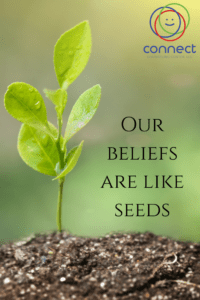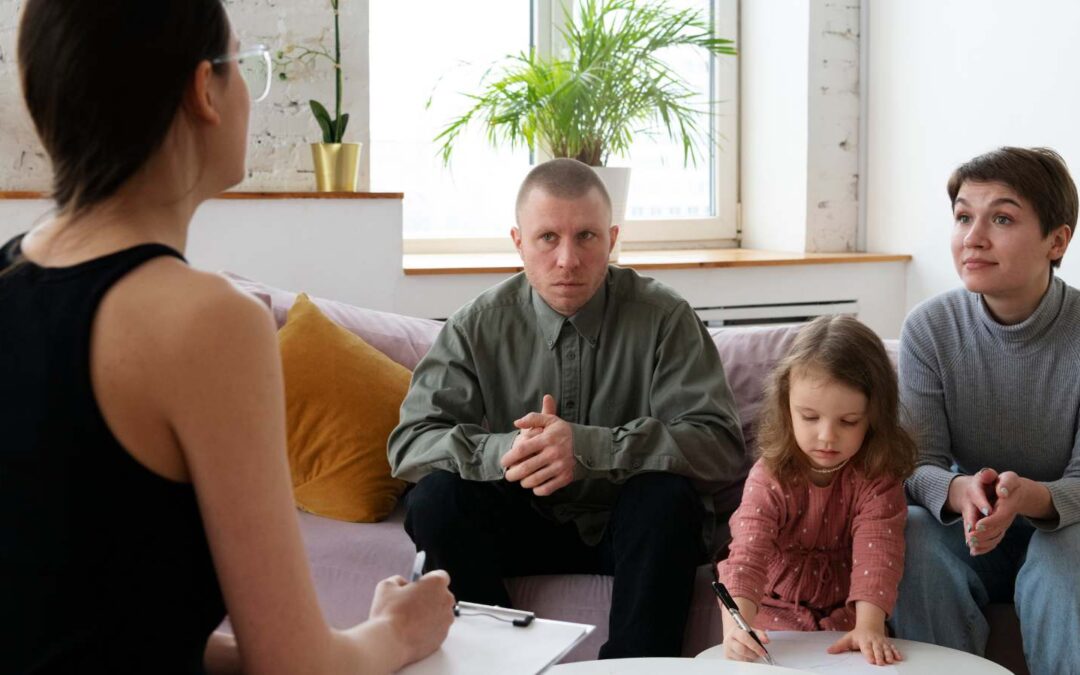 We may not always realize it, but our beliefs can be like seeds. We plant them in the soil of our lives, and then they take root and grow. First, the seed begins to sprout. Roots form downwards as a stem forms upwards and are soon to be joined by tiny needles and leaves. If the spout survives, it becomes a tree and, depending on the type of tree, will eventually bear fruit. Our beliefs, when planted in the soil of our life, also become trees and bear fruit. The fruit of that tree can be good and nourishing, or it can be rotten-making our very lives sick.
We may not always realize it, but our beliefs can be like seeds. We plant them in the soil of our lives, and then they take root and grow. First, the seed begins to sprout. Roots form downwards as a stem forms upwards and are soon to be joined by tiny needles and leaves. If the spout survives, it becomes a tree and, depending on the type of tree, will eventually bear fruit. Our beliefs, when planted in the soil of our life, also become trees and bear fruit. The fruit of that tree can be good and nourishing, or it can be rotten-making our very lives sick.
When we harbor negative beliefs about ourselves, the world, and others, we experience the effects of these beliefs on many levels This rotten fruit manifests itself in the form of emotions such as sadness, hopelessness, anxiety, fear, loneliness, rage, and despair. Those emotions will eventually lead to behaviors such as isolation, control, lashing out, or self-harm. We sometimes try to cope with and manage these negative emotions and behaviors without dealing with the tree that are producing them. We try to will ourselves to try harder to overcome our sadness, control, or anger and then feel hopeless when the bad fruit just grows back again. The problem is that we don’t make the connection between our beliefs (the seed that becomes the tree) and our feelings and behaviors (the fruit). We don’t understand that until we deal with our core beliefs, we will always be picking off rotten fruit and wrestling with the negative emotions and behaviors that these beliefs yield.
Think about it: If an individual has a core belief that “I am worthless”, what kinds of feelings is that core belief going to produce? What kind of behaviors are likely to follow? Let’s face it, there is little chance that a core belief of “I am worthless” is going to lead to feelings of happiness and security. The only logical fruit of that belief is negative feelings and behavior. But what if a person has a core belief that “I have inherent worth and value”? What feelings and behaviors will grow out of those beliefs? Peace? Security? Self-esteem?
If you notice some bad fruit in your life, you might want to dig a little deeper. Try to identify the core beliefs you possess about yourself, others, and the world around you. It may be that the true source of your problem is what you believe, and that changing what you believe is your solution. I won’t lie to you, changing beliefs that you have held for a long time is not easy. It’s hard work. But with determination and support, it can be done. If you have been dealing with rotten fruit, it’s time to cut down that bad tree and plant a new one in its place. New, healthy seeds can take root in your life and grow fruit that will bring nourishment to your life for years to come.





